Tooth Supported Overdenture
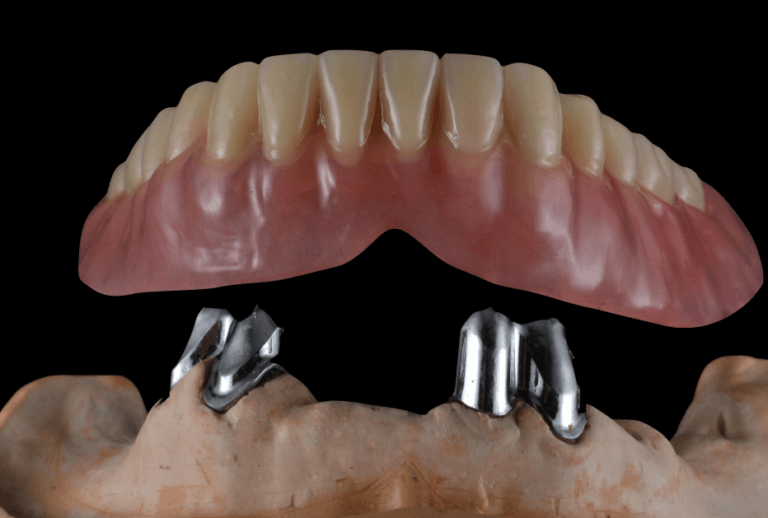
What Is A Tooth Supported Overdenture?
A Tooth Supported Overdenture is a type of removable complete denture prosthesis that rests over the gums and is supported by remaining natural teeth. Unlike traditional dentures that rely solely on suction and adhesives to stay in place, a tooth-supported overdenture utilizes the support of the remaining natural teeth to provide enhanced stability and retention.
Before deciding on whether A Tooth Supported Overdenture are right for you, there are some things you should know:
- Who Needs A Tooth Supported Overdenture?
- What Are The Advantages Of A Tooth Supported Overdenture?
- What Are The Alternative Treatments If I Do Not Choose A Tooth Supported Overdenture?
- How Much Does A Tooth Supported Overdenture Cost?
- What Are The Steps In The Tooth Supported Overdenture Procedure?
- How Long Does A Tooth Supported Overdenture Last?
- What Are Common Problems with A Tooth Supported Overdenture?
If you have any further questions about A Tooth Supported Overdenture or other dental services offered at Atlas Dental, please contact us.

Free Phone Consultation
Have questions about overdentures for missing teeth? Book a free phone consult with our Toronto dentist

5 star google reviews
Our patients love their overdentures! See for yourself why patients choose Atlas Dental.

Book a overdenture appointment online
We make custom fitted overdentures to help our patients smile confidently again.
Who Needs A Tooth Supported Overdenture?
Tooth supported overdentures can be a valuable solution for individuals who have lost multiple teeth or are facing the prospect of complete tooth loss. Here are some situations in which a tooth supported overdenture might be recommended:
- Partial Tooth Loss: If you have lost several teeth, but still have some remaining natural teeth, a tooth supported overdenture could be an excellent option. It can replace the missing teeth while utilizing the existing natural teeth as stable anchors for the overdenture.
- Preservation of Natural Teeth: Tooth supported overdentures can help preserve the health and integrity of your remaining natural teeth. By providing support to the adjacent teeth, they can reduce the risk of further tooth loss and maintain the alignment of your dental arch.
- Improved Chewing and Speech: Missing teeth can make it difficult to chew food properly and can lead to speech difficulties. A tooth supported overdenture enhances your ability to bite and chew effectively, improving your dietary choices and restoring clear speech patterns.
- Enhanced Comfort and Stability: Traditional removable dentures may sometimes feel loose or uncomfortable, affecting your ability to enjoy daily activities. Tooth supported overdentures offer increased stability and a snug fit, making them more comfortable and secure during use.
- Preservation of Jawbone: When teeth are lost, the underlying jawbone can gradually deteriorate due to lack of stimulation. A tooth supported overdenture can help stimulate the jawbone, slowing down bone resorption and preserving the facial structure.
- Affordable Alternative to Dental Implants: For individuals who are not suitable candidates for dental implants or prefer a less invasive option, a tooth supported overdenture presents an affordable and effective alternative.
- Restoration of Confidence and Esthetics: Tooth loss can take a toll on one’s self-esteem and confidence. By providing a natural-looking and functional smile, a tooth supported overdenture can significantly improve your appearance and boost your self-confidence.
If you are experiencing tooth loss or facing the possibility of complete edentulism (total tooth loss), it is essential to consult with a qualified dentist or prosthodontist. They can assess your unique oral health situation and recommend the most suitable tooth replacement option, which may include a tooth supported overdenture. If you have further questions about A Tooth Supported Overdenture, please contact us.
What Are The Advantages Of A Tooth Supported Overdenture?
A tooth supported overdenture offers several significant advantages over traditional removable dentures and other tooth replacement options:
- Enhanced Stability and Retention: Unlike conventional dentures that rely on suction and adhesives to stay in place, tooth supported overdentures are secured by the remaining natural teeth. This provides enhanced stability and retention, preventing the overdenture from slipping or moving during daily activities, such as eating and speaking.
- Improved Chewing Efficiency: With their increased stability, tooth supported overdentures enable better chewing efficiency. This allows you to enjoy a more varied diet, including a wider range of foods that might have been difficult to consume with traditional dentures or missing teeth.
- Preservation of Natural Teeth: Tooth supported overdentures help preserve the integrity of your remaining natural teeth. By providing support to the adjacent teeth, the overdenture minimizes the risk of additional tooth loss and helps maintain proper alignment within the dental arch.
- Bone Preservation: When teeth are lost, the underlying jawbone can begin to resorb over time due to lack of stimulation. By supporting the overdenture on natural teeth, the pressure exerted during chewing helps stimulate the jawbone, promoting bone preservation and reducing the rate of bone loss.
- Improved Facial Esthetics: Tooth supported overdentures can contribute to a more natural and youthful facial appearance. By filling in gaps created by missing teeth, the overdenture supports the lips and cheeks, preventing a sunken-in or sagging look often associated with tooth loss.
- Comfort and Confidence: The enhanced stability and secure fit of a tooth supported overdenture can significantly improve comfort and confidence for the wearer. You can engage in social activities, speak, and smile with confidence, knowing that your denture will remain firmly in place.
- Cost-Effectiveness: Tooth supported overdentures offer a cost-effective solution for tooth replacement, especially when compared to dental implants. They provide many of the benefits of implants at a fraction of the cost, making them a more accessible option for individuals with budget constraints.
- Minimally Invasive Procedure: The process of obtaining a tooth supported overdenture typically involves minimal alteration of the natural teeth used for support. This makes it a less invasive alternative to dental implants, which require surgical placement in the jawbone.
- Versatility in Treatment: Tooth supported overdentures can be designed to accommodate various clinical situations. They can be used for both partial and complete tooth loss, making them a versatile option for different individuals’ needs.
A tooth supported overdenture offers a range of advantages that promote improved oral function, enhanced comfort, and a natural-looking smile. However, it’s essential to consult with a dental professional to determine if this option is suitable for your specific oral health condition. If you have further questions about A Tooth Supported Overdenture, please contact us.
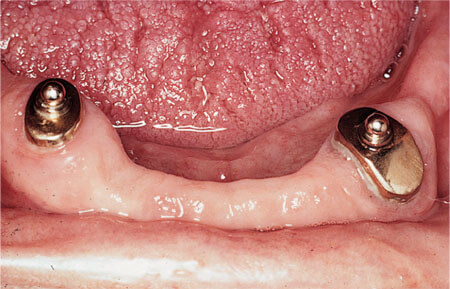
What Are The Alternative Treatments If I Do Not Choose A Tooth Supported Overdenture?
If you decide that a tooth supported overdenture is not the right option for you or if it is not suitable for your specific dental situation, several alternative treatments exist to address tooth loss and restore your oral function and smile:
- Immediate Complete Denture: Immediate complete dentures are a type of denture that is placed in your mouth immediately after the extraction of your remaining natural teeth. These dentures provide an immediate solution for restoring your smile, but it’s important to note that the fit of the denture may change as your gums heal and shrink. You may require adjustments or a new denture as your mouth undergoes changes.
- Complete Denture: Conventional complete dentures are custom-made prosthetic devices designed to replace all of your natural teeth in the upper or lower arch. They rely on suction and adhesives to stay in place. While complete dentures are a cost-effective option, they may lack the stability and retention offered by tooth supported overdentures.
- Implant Denture (Implant-Supported Denture): An implant denture, also known as an implant-supported denture, is a hybrid dental prosthesis that combines dental implants with a removable denture. Dental implants are surgically placed in the jawbone, and the denture is then attached to the implants using special connectors. This option provides excellent stability and functionality, but it may require a more involved and costly treatment process compared to tooth supported overdentures.
- Dental Bridge: A dental bridge is a fixed dental restoration used to replace one or more missing teeth. It consists of one or more artificial teeth (pontics) held in place by dental crowns attached to the adjacent natural teeth. Dental bridges can be a viable option if you have natural teeth adjacent to the gap and wish to avoid removable dentures.
- Removable Partial Denture: If you have some natural teeth remaining, a partial denture can be a suitable choice. Partial dentures consist of artificial teeth attached to a metal or acrylic base, which is custom-made to fit around your remaining natural teeth. They offer an affordable and removable solution for restoring function and appearance.
- No Treatment: While not recommended, some individuals choose to forego any tooth replacement treatment after losing their teeth. Leaving gaps in your mouth can lead to various issues, such as difficulty chewing, speech problems, and potential shifting of adjacent teeth. Additionally, tooth loss can lead to bone resorption, affecting the facial structure over time.
When considering alternative treatments, it is crucial to consult with a qualified dentist or prosthodontist. They will conduct a thorough examination of your oral health, discuss your preferences and goals, and recommend the most suitable treatment option based on your individual needs and budget. If you have further questions about A Tooth Supported Overdenture, please contact us.
Cost of Complete Dentures
Dentures can vary widely in cost depending on several factors, including the type of complete denture, whether it is for the upper or lower jaw, the materials used, how many dental implants are involved, and the location of the dental practice. Therefore, depending on the type of complete denture you are looking for, the cost for the denture prosthesis alone can range from $577 to $2037 plus dental lab fee. The codes relevant to dentures in the Ontario Dental Association’s Suggested Fee Guide appear as follows:
Dentures, Complete, Standard (e.g. Complete Denture)
- 51101 – Maxillary: $1115 + Dental Lab Fee
- 51102 – Mandibular: $1419 + Dental Lab Fee
Dentures, Complete, Provisional (e.g. Immediate Complete Denture)
- 51601 – Maxillary: $577 + Dental Lab Fee
- 51602 – Mandibular: $769 + Dental Lab Fee
Dentures, Complete, Overdentures, Tissue Borne, Supported by Natural Teeth with or without Coping Crowns, no Attachments (e.g. Tooth Supported Overdenture)
- 51711 – Maxillary: $1656+ Dental Lab Fee
- 51712 – Mandibular: $2037+ Dental Lab Fee
Dentures, Complete, Overdentures, Tissue Borne, Supported by Implants with or without Coping Crowns, no Attachments (e.g. Implant Denture; cost of dental implants not included)
- 51721 – Maxillary: $1656 + Dental Lab Fee
- 51722 – Mandibular: $2037 + Dental Lab Fee
Dentures are sometimes considered a supplementary service by dental insurance plans and may or may not be covered by your dental insurance. Be sure to find out from your dental insurance plan provider how much you are eligible for before going ahead with dental treatment. Your dentist can help you submit an predetermination to your dental insurance. Our fees are consistent with the ODA Fee Guide.
For patients without dental insurance, Atlas Dental is pleased to offer dental financing through Dentalcard. Affordable payment plans start at 7.95% for terms of 6 months to 6 years. To learn more about Dentalcard dental treatment financing, follow this link.
What Are The Steps In The Tooth Supported Overdenture Procedure?
The process of obtaining a tooth supported overdenture involves several important steps that ensure a successful and customized outcome:
- Initial Consultation and Examination: The journey begins with an initial consultation with your dental professional. During this appointment, your dentist will review your medical and dental history, discuss your concerns and goals, and perform a comprehensive oral examination. X-rays and impressions of your teeth and gums may be taken to assess your dental condition thoroughly.
- Treatment Planning: Based on the examination results and your specific needs, your dentist will develop a personalized treatment plan. The plan will outline the number of teeth to be replaced, the condition of your remaining teeth, and whether any preparatory procedures, such as tooth extractions or dental treatments, are necessary.
- Preparatory Procedures (If Required): In some cases, preparatory procedures may be necessary before receiving a tooth supported overdenture. This may involve the extraction of damaged or unsalvageable teeth, root canal treatment for salvageable teeth, reducing or reshaping salvaged teeth to ensure a proper fit and secure attachment of the overdenture, dental cleanings, or other treatments to optimize the health of your remaining teeth and gums.
- Impressions and Models: Precise impressions of your mouth will be taken to create models of your dental arches. These models serve as the basis for designing your custom tooth supported overdenture. Please review these denture pre-visit instructions before your visit.
- Tooth Selection and Shade Matching: If you are replacing some but not all of your teeth, you will have the opportunity to select the size, shape, and color of the artificial teeth that will match your natural teeth or achieve your desired aesthetic.
- Design and Fabrication: Using the impressions and models as a guide, the dental laboratory will craft your tooth supported overdenture to fit your mouth accurately. The denture will be designed to ensure optimal comfort, function, and esthetics.
- Try-in and Adjustments: Once the tooth supported overdenture is fabricated, your dentist will conduct a try-in appointment. During this visit, you will try on the denture to assess its fit and make any necessary adjustments to achieve an optimal fit and bite.
- Final Placement: After all adjustments have been made, the final tooth supported overdenture will be placed in your mouth. Your dentist will ensure that it fits comfortably and securely over the remaining natural teeth, providing you with the desired stability and functionality. Please review these denture post-insertion instructions to ensure proper care for your new denture.
- Regular Check-ups: Routine dental check-ups are essential to maintain the health and longevity of your tooth supported overdenture. Regular visits to your dentist will allow for early detection of any issues and ensure your oral health remains in optimal condition.
By following these steps and working closely with your dental professional, you can expect to achieve a tooth supported overdenture that restores your smile, enhances your oral function, and provides the confidence to face the world with a beautiful and functional set of teeth. If you have further questions about A Tooth Supported Overdenture, please contact us.
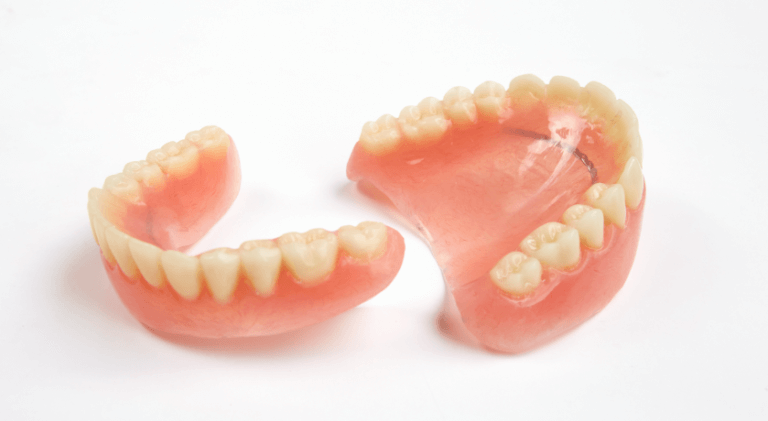
How Long Does A Tooth Supported Overdenture Last?
On average, a well-maintained tooth supported overdenture can last anywhere from 5 to 10 years or even longer. However, it’s important to note that individual experiences may vary, and the longevity of a tooth supported overdenture depends on several factors:
- Quality of Materials: The materials used in the construction of the overdenture play a significant role in its durability. High-quality materials, such as strong denture base resins and robust artificial teeth, are more likely to withstand wear and tear over time.
- Oral Hygiene Practices: Maintaining good oral hygiene is crucial in extending the life of your tooth supported overdenture. Regularly clean your denture, natural teeth, and gums to prevent the buildup of plaque, bacteria, and food debris. Avoid using abrasive cleaners or harsh chemicals that may damage the denture.
- Regular Dental Check-ups: Regular dental check-ups are essential for the early detection and treatment of any issues related to your tooth supported overdenture. Your dentist will assess the fit, function, and condition of the prosthesis and make any necessary adjustments to ensure its optimal performance.
- Changes in Oral Anatomy: Over time, your jawbone and gums may change shape, which can affect the fit of your overdenture. If significant changes occur, a denture reline or replacement may be necessary to maintain proper stability and comfort.
- Bruxism or Teeth Grinding: If you have a habit of clenching or grinding your teeth (bruxism), it can put extra stress on your overdenture and natural teeth, potentially leading to wear and damage. Wearing a nightguard or other protective device can help preserve your prosthesis.
- Dietary Habits: Be mindful of your dietary habits, especially if your tooth supported overdenture has artificial teeth. Avoid biting on hard or sticky foods, as this can cause damage to the denture and compromise its longevity.
- Overall Health: Your overall health can impact the longevity of your tooth supported overdenture. Conditions such as diabetes or xerostomia (dry mouth) may increase the risk of oral health problems that can affect the denture’s lifespan.
To maximize the lifespan of your tooth supported overdenture, it is crucial to follow your dentist’s instructions for care and maintenance diligently. If you notice any signs of damage, discomfort, or changes in fit, seek prompt dental attention. If you have further questions about A Tooth Supported Overdenture, please contact us.
What Are Common Problems with A Tooth Supported Overdenture?
While tooth supported overdentures offer numerous benefits, they can sometimes encounter certain issues or complications. Being aware of these common problems can help you take appropriate actions and seek timely dental care:
- Loose or Unstable Fit: Over time, changes in your jawbone or gum tissues can lead to a loosening of the overdenture fit. This can result in discomfort, difficulty in chewing, and potential speech problems. Regular check-ups with your dentist are essential to address any fit-related issues and make necessary adjustments.
- Gum Irritation or Sore Spots: Some individuals may experience gum irritation or sore spots due to pressure points caused by the overdenture. This can occur if the denture rubs against the gums excessively. Your dentist can adjust the denture to alleviate discomfort and prevent further irritation.
- Challenges with Chewing: If the overdenture is not stable enough, it may impact your ability to chew effectively, limiting your dietary choices and affecting your nutritional intake. Denture adjustments or modifications may be necessary to improve chewing function.
- Speech Difficulties: Adjusting to a tooth supported overdenture can sometimes affect your speech initially. You may experience challenges with pronunciation or find that certain sounds are more difficult to articulate. With practice and patience, most people adapt to the denture, and speech improves over time.
- Breakage or Wear of Artificial Teeth: The artificial teeth used in the overdenture may wear down or become damaged over extended use. Although modern dental materials are durable, they are not entirely immune to wear. Regular dental check-ups allow your dentist to identify any signs of wear or damage and make timely replacements as needed.
- Improper Oral Hygiene Leading to Gum Disease: Poor oral hygiene can lead to gum disease, which can affect both the remaining natural teeth and the gums supporting the overdenture. Regular cleaning of the denture and oral tissues, along with professional dental cleanings, is crucial to maintain healthy oral conditions.
- Odor or Staining: If the overdenture is not cleaned properly, it may develop an unpleasant odor or stains, affecting its appearance and your confidence. Regular denture cleaning, as recommended by your dentist, can prevent these issues.
- Allergic Reactions: In rare cases, some individuals may experience allergic reactions to the materials used in the overdenture. If you notice any unusual reactions or symptoms, consult your dentist immediately.
- Bone Resorption: Even with a tooth supported overdenture, the jawbone may experience some resorption over time due to the loss of natural teeth. Regular dental check-ups can help monitor any bone changes and address potential issues.
Remember that early detection and timely intervention are essential to address common problems with a tooth supported overdenture. If you experience any discomfort, fit-related issues, or changes in your oral health, schedule an appointment with your dentist to address the problem promptly and maintain the long-term effectiveness and comfort of your tooth supported overdenture. If you have further questions about A Tooth Supported Overdenture, please contact us.
We also think you’ll like…
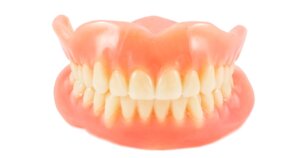
Denture Pre-Visit Instructions
Denture Pre-Visit Instructions What You Should Do Before Your Denture Appointment Cosmetic dentures can help you regain the look, feel and function of a natural
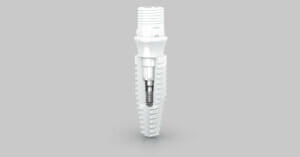
Zirconia Dental Implants
Zirconia Dental Implants What Are Zirconia Dental Implants? Zirconia dental implants are an alternative to traditional titanium dental implants for replacing missing teeth. Unlike titanium
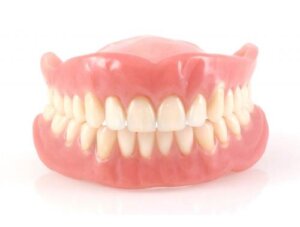
Immediate Complete Denture
Immediate Complete Denture What Is An Immediate Complete Denture? If you’re about to undergo a dental procedure that involves the removal of all your natural
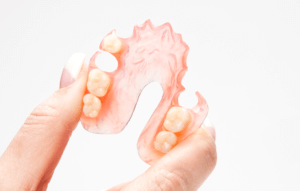
Valplast Flexible Partial Denture
Valplast Flexible Partial Denture What Is A Valplast Flexible Partial Denture? A Valplast Flexible Partial Denture is a type of removable partial dental prosthesis specifically
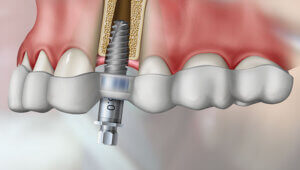
Computer Guided Dental Implant Surgery
Computer Guided Dental Implant Surgery What Is Computer Guided Dental Implant Surgery? Computer guided dental implant surgery is a specialized technique that employs advanced computer
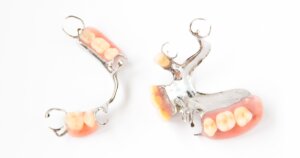
Dentures
Dentures What Are Dentures? Dentures are removable oral appliances designed to replace missing teeth and surrounding tissues. They are custom-made to fit comfortably in your

